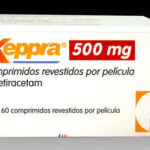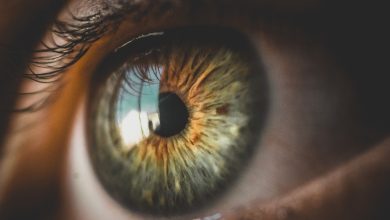FDA warns of rare but serious drug reaction to the antiseizure medicines levetiracetam (Keppra, Keppra XR, Elepsia XR, Spritam) and clobazam (Onfi, Sympazan)

AUDIENCE: Patient, Health Professional, Neurology, Dermatology, Allergy and Immunology, Pharmacy
ISSUE: The FDA is warning that the antiseizure medicines, Keppra, Keppra XR, Elepsia XR, Spritam (levetiracetam) and Onfi, Sympazan (clobazam), can cause a rare but serious reaction that can be life-threatening if not diagnosed and treated quickly. This reaction is called Drug Reaction with Eosinophilia and Systemic Symptoms (DRESS). It may start as a rash but can quickly progress, resulting in injury to internal organs, the need for hospitalization, and even death. As a result, the FDA is requiring warnings about this risk to be added to the prescribing information and patient Medication Guides for these medicines.
This hypersensitivity reaction to these medicines is serious but rare. DRESS can include fever, rash, swollen lymph nodes, or injury to organs including the liver, kidneys, lungs, heart, or pancreas.
For more information about this alert, click on the red button “Read Alert” below.
BACKGROUND:
Keppra, Keppra XR, Elepsia XR, Spritam (levetiracetam)
• Levetiracetam is an antiseizure medicine approved for use alone or with other medicines to control certain types of seizures in adults and children such as partial seizures, myoclonic seizures, or tonic-clonic seizures.
• It has been FDA-approved for 24 years and is available in multiple formulations under the brand names Keppra, Keppra XR, Elepsia XR, and Spritam, and as generics.
• Common side effects of levetiracetam include unusual irritability or aggression, confusion, loss of balance or coordination, and extreme drowsiness.
Onfi, Sympazan (clobazam)
• Clobazam is a benzodiazepine indicated for use in combination with other medicines to control seizures in adults and children 2 years and older who have a specific severe form of epilepsy called Lennox-Gastaut syndrome.
• Benzodiazepines are a class of medicines that depress the central nervous system. DRESS and other serious skin reactions reported with clobazam have generally been associated only with clobazam and not with other benzodiazepines.
• Clobazam has been FDA-approved for 12 years. It is available in multiple formulations under the brand names Onfi and Sympazan, and as generics.
• Common side effects of clobazam include difficulty speaking or swallowing, tiredness, change in appetite, and problems with muscle control or coordination.
RECOMMENDATIONS:
Patients and Caregivers
• Do not stop taking levetiracetam or clobazam without talking with your health care professional. Stopping these medicines suddenly can lead to uncontrolled seizures.
• It is important to seek immediate medical attention for DRESS. Patients who develop any unusual symptoms or reactions, including a rash, at any time while taking levetiracetam or clobazam should go to an emergency room immediately. Fever with a rash and swollen lymph nodes or swelling in the face are common with DRESS, but some patients may not develop a rash.
• Symptoms of DRESS generally start 2 weeks to 8 weeks after starting on the medicine, but these symptoms may occur earlier or later. A physical examination, laboratory blood tests, and other evaluations are used to diagnose DRESS.
Health Care Professionals
• Health care professionals should be aware that prompt recognition and early treatment is important for improving DRESS outcomes and decreasing mortality. Diagnosis is often difficult because early signs and symptoms such as fever and swollen lymph nodes may be present without evidence of a rash.
• DRESS can develop 2 weeks to 8 weeks after starting the medicines, and symptoms and intensity can vary widely.
• DRESS can also be confused with other serious skin reactions such as Stevens-Johnson Syndrome (SJS) and Toxic Epidermal Necrolysis (TEN).
• Advise patients of the signs and symptoms of DRESS and to stop taking their medicine and seek immediate medical attention if DRESS is suspected during treatment with levetiracetam or clobazam.
[11/28/2023 – Drug Safety Communication – FDA]
Health professionals and patients are encouraged to report adverse events or side effects related to the use of these products to the FDA’s MedWatch Safety Information and Adverse Event Reporting Program:
• Complete and submit the report online.
• Download form or call 1-800-332-1088 to request a reporting form, then complete and return to the address on form, or submit by fax to 1-800-FDA-0178.





